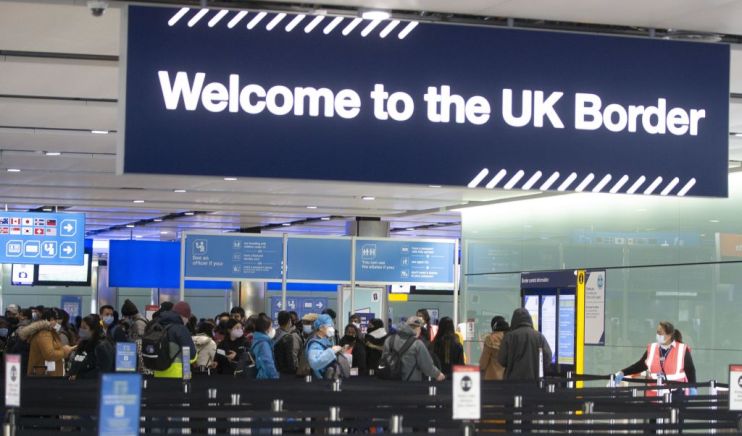London will be diminished if the Government’s Fortress Britain approach lasts much longer

The sights and sounds of London’s gradual return to normality are tonic for the soul.
There are the obvious signs: the march of City workers across London Bridge in the morning, queues at Pret at lunchtime, a packed Greek Street in the evening. And there are the less obvious, like spotting tourists plotting their journey from Bond Street to Charing Cross, staring intently at Harry Beck’s tube map masterpiece.
What’s striking about the latter is how many of those tourists speak with British accents as they quibble over where is best to change for the Circle and District line. It’s both wonderful and a poignant sign of the times.
This is London, after all. You’re supposed to hear five different languages by the time you’ve got your coffee in the morning.
Read more: Sadiq Khan unveils huge London tourism campaign after reelection
But those tourists and visitors aren’t welcome here at the moment. Nor are the foreign businesspeople, or the Londoners who went “back home” for the pandemic and now want to return. It is off limits for those who want to see this once perpetually open and international city for the first time.
Quarantines, border restrictions, and the rhetoric from a Government luxuriating in tough talk says one thing to the rest of the world: Britain is closed.
There are some, of course, who say it’s entirely rational: a spike in Covid-19 cases came from the Indian-origin Delta variant, we can’t risk that again, and if we just shut the doors at Heathrow we’ll be able to enjoy our lives here.
But policy cannot be driven by hypotheticals – a variant could emerge and it could be resistant to existing vaccines so we must make decisions as if those possibilities are certainties.
Fortress Britain must not be the norm. The evidence showing even the Delta variant is effectively immunised by our suite of vaccines has continued to grow. Meanwhile, the pharma companies are busily working to create booster jabs in anticipation of any threats to the current programme.
Too many businesses, and livelihoods, depend on the UK’s magnetic pull to the rest of the world. That’s truer than anywhere else in London.
Our restaurants are closing at lunchtime because European staff can’t, or won’t, come back to the capital. West End bars are struggling for custom because no matter how many of the good folk of Coventry get the train down it doesn’t replace a continent’s-worth of Ryanair flights. Hotels are ghost-towns.
How long is this going to go on? How long are we going to be scared of the unknown? How long will we make policy decisions with the precision of a magic-eight ball?
We can already see the international implications.
The EU, an organisation not exactly known for decisiveness and speed, is moving ahead. Emmanuel Macron is wining and dining US banking bosses in Versailles next week, imploring them to move more of their operations across the channel. Frankly, his argument looks more compelling than it should if we continue cutting ourselves off from the rest of the world.
Some will no doubt think this is a tad on the apocalyptic side. We expect the Government to tomorrow announce changes to the travel regime, which should allow vaccinated people to travel freely. We hope, anyway.
Even then, work needs to be done to ensure that we don’t have hours of long queues at our airports. When you look at the level of private sector innovation over the past year, it shouldn’t be beyond the wit of the Home Office to get our e-Gates to read QR codes.
London is an international city. It belongs to Londoners but we’ve always lent it to the world. Every day those avenues are shut comes with consequences.
Read more: Heathrow to open separate terminal for red list arrivals
